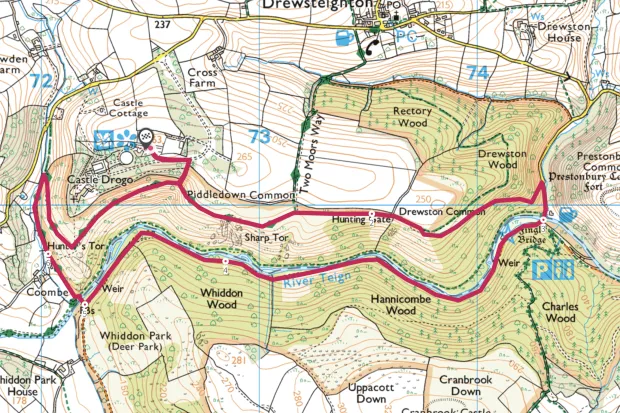The River Teign tumbles off windswept moors, swirling and carving through a spectacular gorge overhung with crooked oaks and beeches. The fresh autumn air invigorates the soul, while the peace is occasionally broken by the chilling bellows of a stag ready to rut.
Deep within this valley in the northern fringes of Dartmoor National Park, an ancient woodland is returning. Follow this circular walking route through Teign Valley to find out more.
Dartmoor walks
This huge moorland scattered with staggering granite tors in the south-east of Devon is a hiker's paradise – discover the best walking routes in Dartmoor National Park with our guide.
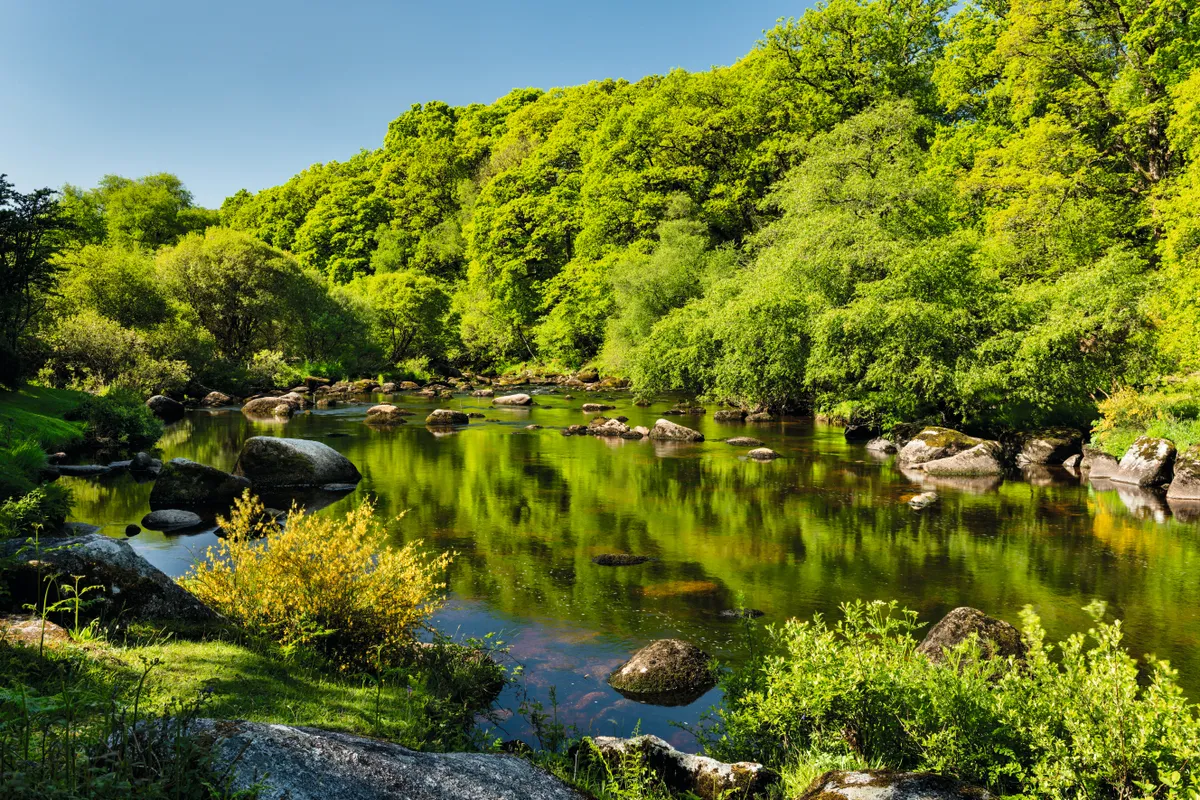
Castle Drago to Fingle Bridge walk
6.9km/4.3 miles | 2.5 hours | moderate | 225m ascent
1. Castle Drago
The walk begins in the car park of Britain’s youngest castle, Castle Drogo, built between 1910 and 1930 and acquired by the National Trust in 1974. Follow signs for the Teign Valley estate walks, then turn right shortly after to join the Hunters Path. Descend steps through a gate to Piddledown Common.
At the bottom, turn left and follow signs for Fingle Bridge, soon passing Sharp Tor where there are breathtaking moorland views. In autumn, when the sun sits low, Whiddon Wood opposite glows with glorious rusty hues.
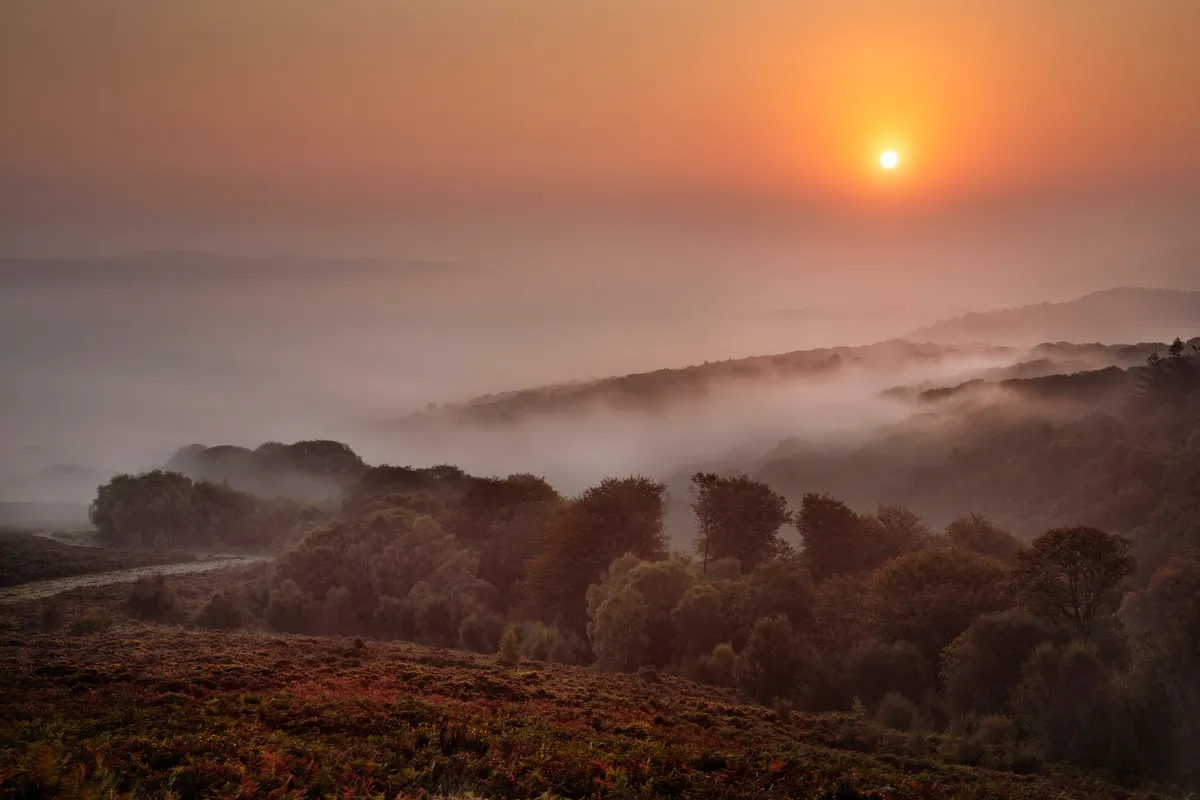
Some 3,000 years ago, in the Iron Age, these woods were a hub for timber production and hunting. Over time, depletion of the forest’s resources caused its rich ecology to suffer (the lofty oaks that remain could surely tell some tales). For years, conifers dominated the gorge, but the woods are now being restored to their former deciduous glory. The National Trust and the Woodland Trust are overseeing this spectacular transformation, making it one of the largest woodland restoration projects in England.
2. Fingle Bridge Inn
Pass through Hunting Gate and shortly after bear right on another path.
After 600m, join a road and turn right, dropping towards rugged Fingle Bridge and the Fingle Bridge Inn. Stop for some mid-ramble refreshments at the riverside pub, or picnic on the grassy banks beside the gurgling river. Towering above is the 5th–8th-century Prestonbury Castle, one of four Iron-Age hill forts in Fingle Woods. The elusive white stag occasionally surveys the gorge from this vantage point; a magical reward for those venturing out at dawn or dusk.
Cross the bridge, then turn right to join the Foresters Track. Autumn, when the river is high, offers the opportunity to spot running Atlantic salmon and brown trout; a spectacular sight, particularly near Fingle Bridge as they search for suitable spawning grounds.
Birch Polymore
The valley’s damp and shady arboreal nature creates ideal conditions for the dispersal of fungal spores. In the dappled light, search for birch polypore, a common bracket fungus.
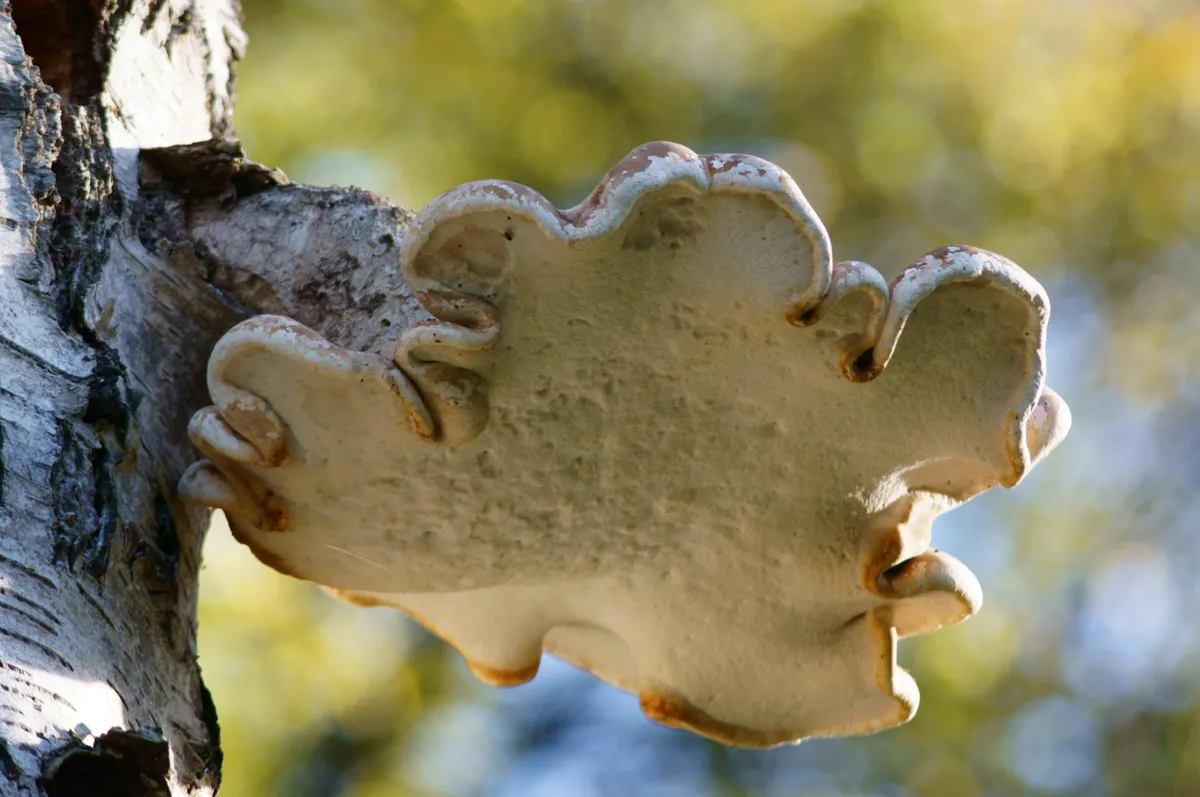
3. Whiddon Deer Park
Follow the Foresters Track as it hugs the River Teign, passing a hydroelectric plant. Across the gorge you can see Piddledown Common and perhaps glimpse Drogo above the tree line. Pass through a gate along the lower wall of Whiddon Deer Park, listening for the bellow of rutting bucks.
4. Fisherman’s Path
Continue along the wall until you reach a stone stile. Climb over and cross the suspension bridge, looking downstream to the white water of Drogo Weir. A canopy of beech, larch, oak, horse chestnut and birch trees merge overhead to form a rainbow of autumnal colour.
Join the Fisherman’s Path, turning left and right before following signs for Drogo and the Two Moors Way. Continue on to a tarmac drive near Gibb House and follow this uphill.
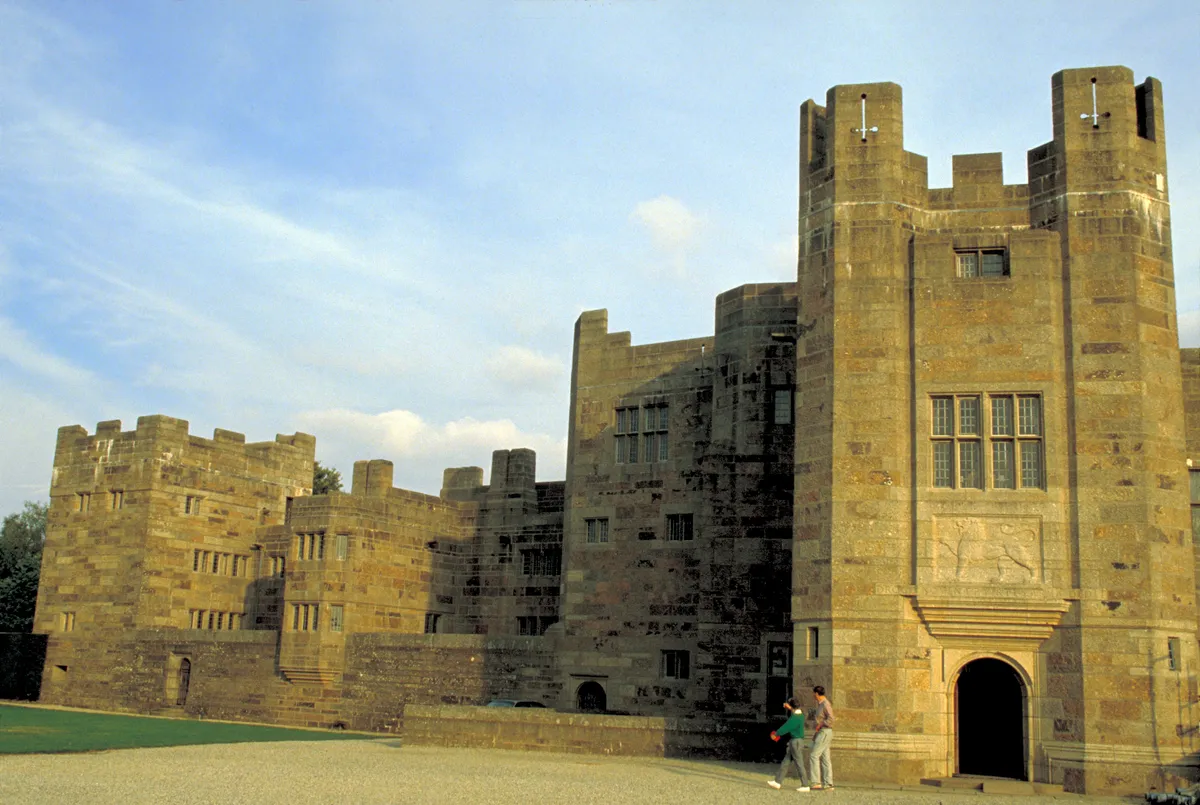
You’ll soon reach a wooden gate on the right between two huge yellow beech trees. Pass through and follow signs for the Hunters Path below the castle to the steps where the walk began. The castle tearoom serves a splendid cream tea.
Take a moment to ponder the future of the woods as seedlings sprout where conifers have been felled. These young trees may guarantee the enduring beauty of this special place.
Castle Drago to Fingle Bridge map
Teign Gorge walking route and map
